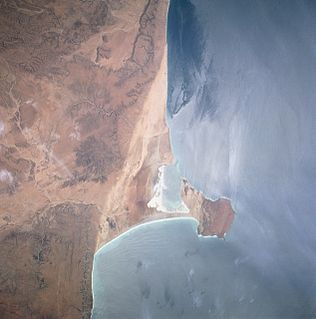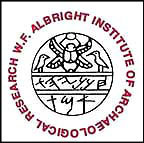
The British Academy is the United Kingdom's national academy for the humanities and the social sciences. It was established in 1902 and received its royal charter in the same year. It is now a fellowship of more than 1,000 leading scholars spanning all disciplines across the humanities and social sciences and a funding body for research projects across the United Kingdom. The academy is a self-governing and independent registered charity, based at 10–11 Carlton House Terrace in London.
Academia Sinica, headquartered in Nangang, Taipei, is the national academy of the Republic of China (Taiwan). Founded in Nanking, the academy supports research activities in a wide variety of disciplines, ranging from mathematical and physical sciences, to life sciences, and to humanities and social sciences. As an educational institute, it provides PhD training and scholarship through its English-language Taiwan International Graduate Program in biology, agriculture, chemistry, physics, informatics, and earth and environmental sciences.
The Council for British Research in the Levant (CBRL) is a non-profit organisation that promotes humanities and social science research in the Levant. It consists of two research institutes, the Kenyon Institute in Jerusalem and the British Institute in Amman (BIA) in Amman, Jordan.

Ras Hafun, also known as Cape Hafun, is a promontory in the northeastern Migiurtinia region of Somalia. Jutting out into the Guardafui Channel, it constitutes the easternmost point in Africa. The area is situated near the Cape Guardafui headland. It is joined to the mainland at the town of Foar, by a sand spit 20.0 km (12.4 mi) long, 1.0–3.0 km (0.62–1.86 mi) in width, and 5.0 m (16.4 ft) above sea level. The fishing town of Hafun is located on the promontory, 2.0 km (1.2 mi) east of the sand spit.
The American Council of Learned Societies (ACLS), founded in 1919, is a private, nonprofit federation of 75 scholarly organizations in the humanities and related social sciences. It is best known for its fellowship competitions which provide a range of opportunities for scholars in the humanities and related social sciences at all career stages, from graduate students to distinguished professors to independent scholars, working with a number of disciplines and methodologies in the U.S. and abroad.

Aga Khan University is a non-profit institution and an agency of the Aga Khan Development Network. It was Founded in 1983 as Pakistan's first private university. Starting in 2000, the university expanded to Kenya, Tanzania, Uganda, the United Kingdom and Afghanistan.

Martin John Millett, is a British archaeologist and academic. He is the Laurence Professor of Classical Archaeology at the University of Cambridge and a professorial fellow of Fitzwilliam College, Cambridge. Since 2021, he has been president of the Society of Antiquaries of London.

Founded in 1943, the Omohundro Institute of Early American History and Culture (OI) is an independent research organization located in Williamsburg, Virginia, sponsored by William & Mary and Colonial Williamsburg. The OI supports the scholars and scholarship of vast early America—a term used to describe the capacious histories of North America and related geographies, including foundational histories of indigenous peoples, the scale and impact of transatlantic slavery, and multidimensional European colonization and settlement, from the 1450s to the 1820s.
The Urewe culture developed and spread in and around the Lake Victoria region of Africa during the African Iron Age. The culture's earliest dated artefacts are located in the Kagera Region of Tanzania, and it extended as far west as the Kivu region of the Democratic Republic of the Congo, as far east as the Nyanza and Western provinces of Kenya, and north into Uganda, Rwanda and Burundi. Sites from the Urewe culture date from the Early Iron Age, from the 5th century BC to the 6th century AD. the Urewe people certainly did not disappear, and the continuity of institutional life was never completely broken. One of the most striking things about the Early Iron Age pots and smelting furnaces is that some of them were discovered at sites that the local people still associate with royalty, and still more significant is the continuity of language.
Dr. Neville H. Chittick was a British scholar and archaeologist. He specialized in the historic cultures of Northeast Africa, and also devoted various works to the Swahili Coast.

Somali studies is the scholarly term for research concerning Somalis and Greater Somalia. It consists of several disciplines such as anthropology, sociology, linguistics, historiography and archaeology. The field draws from old Somali chronicles, records and oral literature, in addition to written accounts and traditions about Somalis from explorers and geographers in the Horn of Africa and the Middle East. The Somali Studies International Association is the primary organization for Somalist scholars. Bildhaan, Somali Studies, Horn of Africa and the Anglo-Somali Society Journal likewise serve as the field's main periodicals. Since 1980, prominent Somalist scholars from around the world have also gathered annually to hold the International Congress of Somali Studies.
Stanford University has many centers and institutes dedicated to the study of various specific topics. These centers and institutes may be within a department, within a school but across departments, an independent laboratory, institute or center reporting directly to the Dean of Research and outside any school, or semi-independent of the University itself.

Music archaeology is an interdisciplinary study field that combines musicology and archaeology. As it includes music from numerous cultures, it is often seen as being a part of ethnomusicology, and indeed a study group looking into music archaeology first emerged from ethnomusicological group the ICTM, not from within archaeology.

The W. F. Albright Institute of Archaeological Research (AIAR), is an archaeological research institution located in East Jerusalem. It is the oldest American research center for ancient Near Eastern studies in the Middle East. Founded in 1900 as the American School of Oriental Research, it was renamed in 1970 after its most distinguished director and the father of Biblical archaeology, William F. Albright. Its mission is to develop and disseminate scholarly knowledge of the literature, history, and culture of the Near East, as well as the study of civilization from pre-history to the early Islamic period.
The Princeton Institute for International and Regional Studies (PIIRS) is the main research center for international studies and area studies at Princeton University and is one of the oldest centers of its kind in the United States. The Institute focuses on an interdisciplinary approach and its associated faculty is drawn from more than 150 professors and other scholars from more than 25 different departments within Princeton. Its director is historian Stephen Kotkin, the John P. Birkelund ’52 Professor in History and International Affairs.
Ntusi is a Late Iron Age archaeological site located in southwestern Uganda that dates from the tenth century to the fifteenth century AD. Ntusi is dominated by two large mounds and manmade scraped valley basins called, bwogero. Long abandoned by the time Hima herdsman grazed their cattle on the Bwera, the herdsman named the site "Ntusi" meaning, "the mounds", after the prominent earthworks. The archaeological record at Ntusi is unmistakable in the signs of intense occupation and activity and it represents the beginning of political complexity in this region of Africa. Bigo bya Mugenyi, another site with prominent earthworks, lies 13 km to the north of Ntusi.
Lynn Meskell is an Australian-born archaeologist and anthropologist. She completed her Ph.D. at Cambridge University in 1997. She is currently Penn Integrates Knowledge Professor in the School of Arts and Sciences and Professor of Historic Preservation in the Weitzman School of Design at the University of Pennsylvania.
Freda Nkirote M’Mbogori is a Kenyan archaeologist, who is Director of the British Institute in Eastern Africa (BIEA) and President of the Pan-African Archaeological Association.
British School of Archaeology may refer to some of the British International Research Institutes supported by the British Academy, of which now there are eight:







